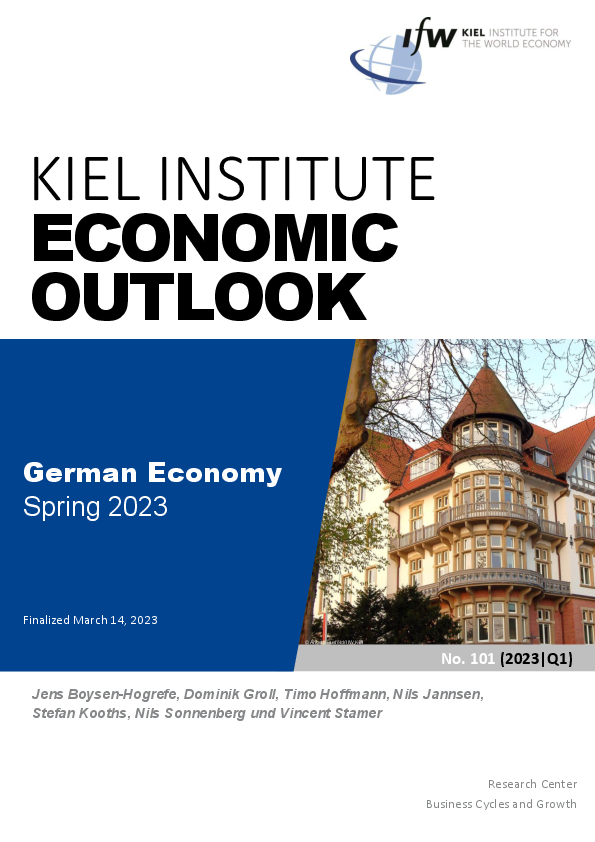Economic Outlook
German Economy in Spring 2023: Economy is stabilizing but little momentum going forward
Authors
Publication Date
Key Words
Related Topics
Labor Market
Fiscal Policy & National Budgets
Business Cycle Germany
The German economy is working its way out of the energy crisis. In recent months, the economic outlook has improved somewhat. However, overall economic production will increase only moderately. GDP is expected to increase by 0.5 percent in the current year and by 1.4 percent in 2024, slightly more than we had expected in our winter forecast (0.3 percent and 1.3 percent, respectively). The German economy, thus, seems to avoid a deep contraction as a result of the energy crisis. However, the economic consequences of the war in Ukraine have slowed down the recovery from the pandemic and depressed the level of GDP. Inflation is likely to remain stubbornly high for some time. Similar to our winter forecast, we expect consumer prices to increase by 5.4 percent in the current year and 2.1 percent in 2024. High inflation reduces the disposable income of private households and leads to a decline in private consumption in this year. No major impulses are emerging from the global economy. However, as supply bottlenecks ease, companies in the manufacturing industry can start to work off their previously accumulated order backlogs, even if energy-intensive industries are still suffering from high energy prices. Construction investment will decline significantly due to the worsening financial conditions. The labour market remains robust despite slow GDP growth. On the contrary, the consequences of demographic change are becoming increasingly apparent: In the next years, employment will pass its peak. The massive shortage of skilled workers will lead to strong wage increases in times of high inflation. Due to strongly increasing revenues and high inflation, the public deficit relative to nominal GDP is expected to fall from 2.6 per cent in 2022 to 1.4 per cent in 2024. The debt ratio is expected to decline from 66.4 per cent to 63.5 per cent during this period











